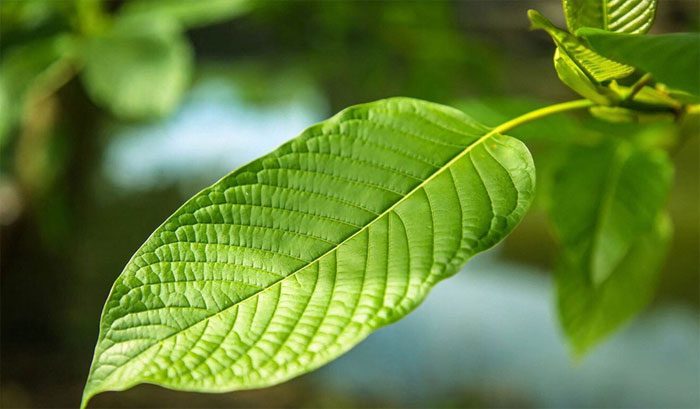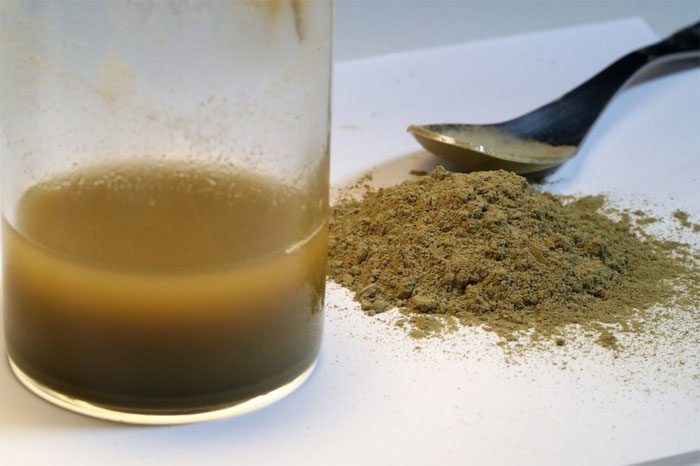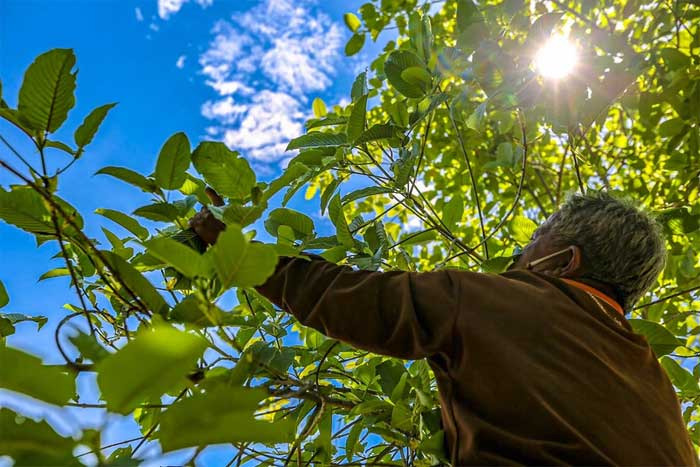To this day, kratom – dubbed “legal heroin” in the U.S. and many parts of the world – continues to spark controversy regarding the need to regulate the use of this herb.
According to the South China Morning Post, the kratom herb received little attention in Hong Kong until it was banned in August. Hong Kong customs seized 2.5 tons of the psychoactive substance – valued at approximately 6.67 million HKD (856,700 USD) – that was being shipped from Indonesia to Florida, USA.
Coincidentally, from October 11 to 15, experts from the World Health Organization (WHO) will meet in Geneva, Switzerland, to conduct an initial assessment of kratom and determine whether this herb should be included in the list of globally controlled substances, according to the South China Morning Post.
What is Kratom?
Kratom is made from the leaves of the evergreen tree Mitragyna speciosa, native to Southeast Asian countries, including Indonesia and Thailand. This herb can be found in the form of fresh leaves, dried leaves, or powdered extracts.
Indonesia and Thailand are considered the largest producers of kratom in the world. The U.S. is the main market for this herb, according to the South China Morning Post.

Kratom leaves on a farm in Thailand. (Photo: AFP).
Used in traditional medicine for centuries, kratom is marketed as a pain reliever and a treatment for various ailments. Many claims suggest that kratom can enhance social interaction, increase libido, reduce fatigue, and boost energy.
Users may chew fresh leaves, brew tea, or swallow capsules containing powdered extracts. Indonesia is believed to supply over 90% of the world’s kratom.
This herb is easily sold online, and vendors can openly advertise it in the country.
Why is Kratom Concerning?
The primary concern is whether kratom is a dangerous drug that can lead to addiction. In recent years, an increasing number of people in the U.S. and other parts of the world have turned to kratom as a substitute or treatment for opioid addiction – substances that include heroin and opiates.
Scientists indicate that kratom can be addictive. This herb contains the chemical compounds mitragynine and 7-hydroxymitragynine, which produce stimulating or sedative effects, similar to those of opioids.

Kratom is said to reduce the effects of opioid addiction. (Photo: SCMP).
The U.S. Food and Drug Administration (FDA) has warned that kratom and its neuroactive compounds may put users at risk of addiction, abuse, and dependence.
Over 300 deaths related to kratom have been reported since 2010, primarily in the U.S. and Western Europe. A study by the U.S. Centers for Disease Control and Prevention (CDC) indicated that kratom was responsible for 91 deaths from 2016 to 2017.
The U.S. is considered the largest kratom market in the world, with an estimated value of over 1 billion USD annually. The American Kratom Association stated in 2019 that there are approximately 10-15 million users based on import data from Indonesia – the main supplier of kratom to the U.S.
Inconsistent Regulations Worldwide
Regulations regarding kratom worldwide are inconsistent. Many places have imposed bans on this herb, while kratom is freely used in other areas.
The Association of Southeast Asian Nations (ASEAN) banned the use of kratom in herbal medicine or health supplements in 2013, citing “harm to human health.”

Many countries have now banned the use of kratom. (Photo: AFP).
Since August, anyone in Hong Kong convicted of trafficking kratom faces a maximum penalty of 5 million HKD (nearly 650,000 USD) and life imprisonment. Possession and consumption are also criminal offenses.
Indonesia aims to ban kratom by 2022. Thailand has had a ban since 1943 but legalized its use for adults in August.
In the U.S., kratom has been listed as a “drug of concern” by the Drug Enforcement Administration for several years but is not federally banned. Six states and several cities have banned this herb, while a few other states regulate its sale.
Kratom is currently not included in any United Nations treaties related to controlled substances and drugs, according to the South China Morning Post.
Although various studies have raised concerns, there is still a lack of conclusive research and data on kratom. Advocates for a ban in the U.S. assert that there are no proven medical benefits and instead highlight the potential for high abuse and dependence.
In contrast, users and supporters argue that this substance has “more benefits than harms.” They emphasize that there have been no deaths entirely attributed to kratom abuse to date.
The American Kratom Association has been actively lobbying to prevent a ban. Experts at the WHO meeting will review the evidence to assess whether kratom and its primary compounds warrant tighter oversight.
If experts do so, the next step will be an official evaluation. This could lead to stricter controls worldwide on this herb.


















































